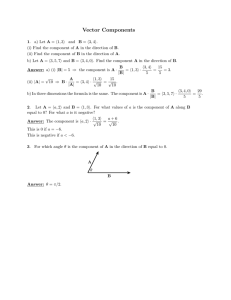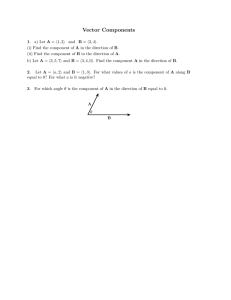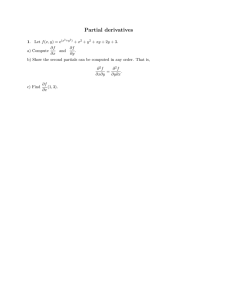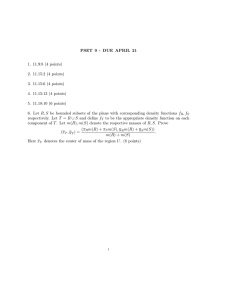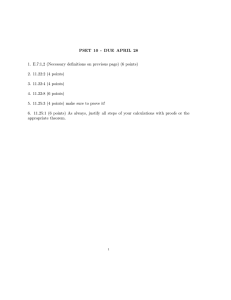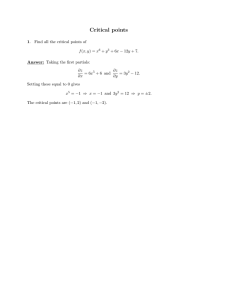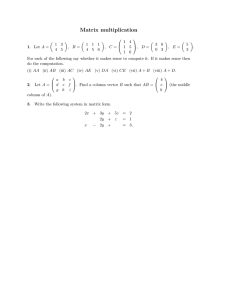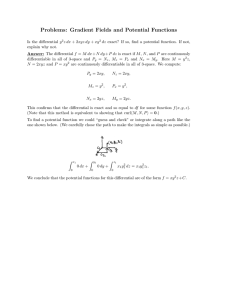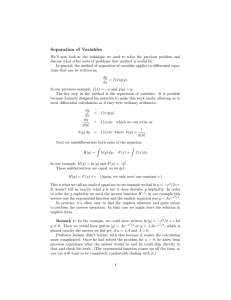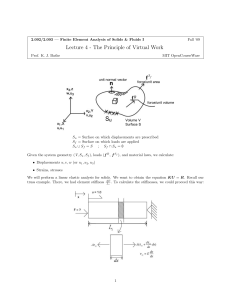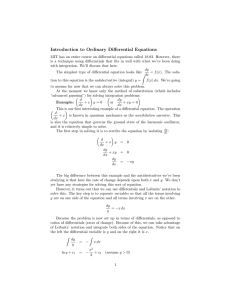Chain rule and total differentials
advertisement
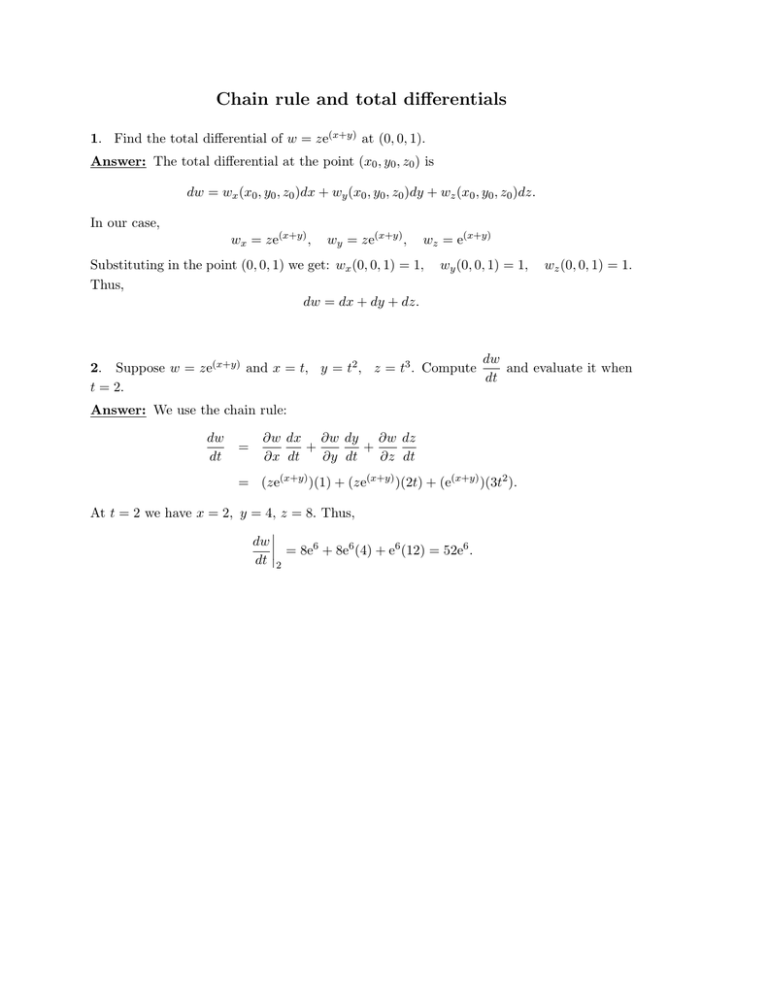
Chain rule and total differentials 1. Find the total differential of w = ze(x+y) at (0, 0, 1). Answer: The total differential at the point (x0 , y0 , z0 ) is dw = wx (x0 , y0 , z0 )dx + wy (x0 , y0 , z0 )dy + wz (x0 , y0 , z0 )dz. In our case, wx = ze(x+y) , wy = ze(x+y) , wz = e(x+y) Substituting in the point (0, 0, 1) we get: wx (0, 0, 1) = 1, Thus, dw = dx + dy + dz. wy (0, 0, 1) = 1, wz (0, 0, 1) = 1. dw and evaluate it when 2. Suppose w = ze(x+y) and x = t, y = t2 , z = t3 . Compute dt t = 2. Answer: We use the chain rule: dw dt = ∂w dx ∂w dy ∂w dz + + ∂x dt ∂y dt ∂z dt = (ze(x+y) )(1) + (ze(x+y) )(2t) + (e(x+y) )(3t2 ). At t = 2 we have x = 2, y = 4, z = 8. Thus, � dw �� = 8e6 + 8e6 (4) + e6 (12) = 52e6 . dt � 2 MIT OpenCourseWare http://ocw.mit.edu 18.02SC Multivariable Calculus Fall 2010 For information about citing these materials or our Terms of Use, visit: http://ocw.mit.edu/terms.
